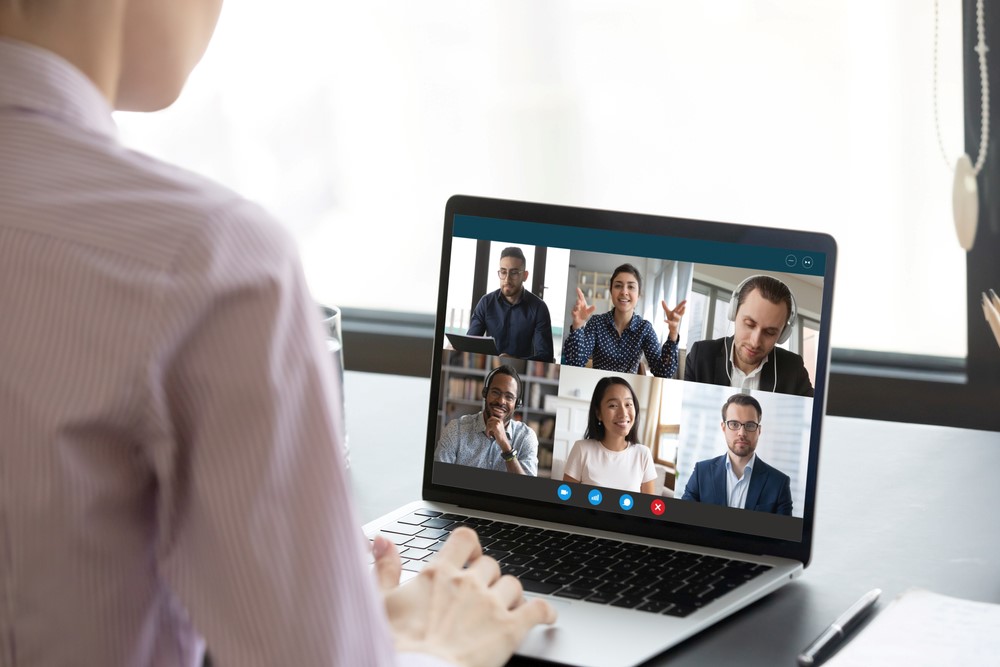
Virtually every company in the world has been affected by COVID-19. In an industry that thrives on door-to-door personalized selling, this is a new reality where dealers are trying to balance social distancing and at the same time support customers and bring in revenue.
While it is not an easy time to conduct business, it is not impossible. Luckily, the security business has been deemed essential and, consequently, companies in the field have been allowed to keep their doors open. With a little creativity and some sound business practices, security pros can not only stay afloat during this crisis but can actually find profitable pockets of opportunity.
This document offers several elements, including:
- An article from Security Sales & Integration
- Ways for Dealers to Maximize Revenue
- Everyday Tips for Dealers
- Everyday Tips for Installers
- COVID-19 Resources

Why Security Pros May Benefit From the Coronavirus Outbreak
*Originally published on Security Sales & Integration*
Though COVID-19 is putting serious stress on citizens and myriad industries, history has shown that the security industry will likely remain bulletproof.
From both business and personal standpoints, these are strange and challenging times for all of us, some of course more than others. Personally, my heart goes out to those most directly impacted by the coronavirus crisis.
Professionally — layoffs and furloughs notwithstanding (to whom my heart also goes out to) — this ordeal I believe underscores what a strong, vital and resilient industry all of us as security practitioners are fortunate to be a part of.
Those in the know understand those virtues are among the qualities that ought to draw many more talented young people to careers in security, but that is another topic.
Here, I wanted to offer some words of support and encouragement by reminding everyone that, amid the virus-inflicted economic downturn, security is about as recession-proof an industry as anyone might speculate about. Or as I like to say, there is security in security.
It is not immune to market volatility, but it is certainly more stable than most; so, recession resistant is perhaps the most accurate descriptor. This is because when money flows, people, businesses and other organizations spend money on security and security-related solutions; and when things dry up, the haves continue to allocate funds to security to safeguard resources and assets from the have-nots.
Furthermore, humans’ basic need for security and safety remain relative constants throughout any Wall Street rollercoaster rides.
While from a societal perspective it is a shame, according to some reports, that crime is spiking in places, it is an opportunity for security dealers, integrators and monitoring providers to deliver solutions. During these daunting times, you and your company can come through heroically to help combat such crime and at the same time maintain profitability.
In cases where existing or prospective clients may be financially strapped due to the coronavirus crisis, your company can foster long-term brand loyalty throughout the communities it serves by extending payment plans or offering more value-add services. Doing so will also boost morale within the ranks for being associated with an empathetic employer.
An additional opportunity I want to highlight is how currently having so many places on lockdown could be taken advantage of from a security standpoint. Being able to freely access typically busy locations unimpeded by people, crowds or schedules can provide ideal circumstances to upgrade, install or service devices, systems and solutions without business disruption.
Those factors could in some cases dramatically reduce the time needed to complete projects — and help keep a security provider’s own personnel busily working during this crisis. It’s true that some end-user organizations may be experiencing cash-flow issues, but again that could be a means by which to work even more closely with them as a caring partner.
Whichever way you and your company navigate the present climate and emerge on the other side (yes, “normalcy” is just around the corner) for now I urge a continued outreach to maintain an ongoing connection with customers and the marketplace.
Make use of email, websites, social media and, in some cases, text or even phone calls. Remind them you are working through it just like they are, and eager to assist in any way possible to bring them more peace of mind and make their lives easier. For now, I continue to wish you, your family and business the best of health and outcomes.
TIPS FOR DEALERS
In this period of uncertainty, more and more homeowners want solutions that give them peace-of-mind during this pandemic. So, there is definitely a need to secure our homes, protect our families, and have one less thing to worry about in these stressful, difficult times.
As indicated by the previous article, the security industry find itself in a better position than many other industries. Not only has it been designated an “essential” business, allowing security professional to keep their doors open, but the virus actually does open some doors of opportunity that can lead to increased revenue. Still, although it might be in a better position than other industries, security companies and dealers are going to feel some degree of impact, some worse than others.
“What we are working really hard at is to ensure that our people have projects, whether those are installations or service calls or preventive maintenance calls,” says John Krumme, CEO of security integrator Cam-Dex “That has fallen squarely on the shoulders of our project managers and our service coordinator. They are working doubly hard during this pandemic because it’s not easy when 70% of our customers have asked us not to come to their facilities.”
STEPS YOU CAN TAKE
Below are some steps that you can take to minimize the financial effect on your business and help keep things running as smoothly as possible while we all ride out this crisis. You may already be doing some, but we thought it would be helpful to present them all in one spot for easy reference. We’ve divided them into two categories: customer-centered practices and business-centered practices:
Customer-Centered
- Create a simple weekly or bi-weekly newsletter to maintain communication with clients; the communications don’t even have to be business-related.
- Generate fresh social media content on a regular basis to keep customers engaged; consider boosting posts to create new followers.
- Inform customers of the precautions your installers are taking, such as working from home, sanitization, masks, gloves, etc.
- Proactively reach out to customers to help with their networks, security, or other concerns they might have.
- Replace in-person meetings with Zoom calls and find other tech-enabled workarounds.
- Upsell customers on additional devices, considering you’ve already built a foundation of trust with them.
Business-Centered
- Be diligent with Accounts Receivables, Request for Proposals and Collections; it’s particularly important now to maintain awareness and control of all business transactions.
- Extend terms with vendors; communicate with vendors you don’t want to get on credit hold– some will work with you.
- Freeze overtime: look for ways to get projects done during regular business hours.
- Keep cash in the business; you may need to put more cash in for the short term.
- Make near-term production workload your primary focus. Project-by-project detail is important.
- Overcommunicate with your team. You cannot communicate too much in this environment; schedule regular conference call, zoom meetings, one-to-ones, etc.
- Tighten purchasing; buy only essentials for projects that can be delivered.
- Send techs home if there is no work; encourage vacations during slower work periods.
- Shift to digital advertising since door-to-door sales are not likely to be fruitful. That means:
- Claiming your position online by strengthening your social media presence
- Leveraging Google Ads for improved visibility
- Refreshing your website content with coronavirus specific messages
- Use showroom inventory for delivery.
- Verify which vendors are classified as essential and are still shipping.
TIPS FOR INSTALLERS
Consumers are craving safety in a world that seems increasingly dangerous. While they are eager to use sophisticated technology to secure their families and their homes, they may be hesitant to open their doors to the professionals who install and maintain such security systems.
It is a conundrum the likes of which the professional security installer hasn’t seen before, and it’s sending ripples of anxiety through the industry: Is this the moment I lose my customers to tech giants like Google and Amazon who offer out-of-the-box solutions that will turn millions of consumers into self-reliant, DIYers?
The answer to this question is no. In fact, this is the moment the professional installer becomes more important to consumers than ever, and even grows the business in ways that might not have been impossible just a few months ago.
The spread of coronavirus is causing a sea change in consumer behavior, and professionals who stay customer-centric in times like these will find ways to strengthen their position, and show that now more than ever the human touch matters — even if it must be done at a distance. In times like these, it is critical for installers to follow these simple rules:
- Check your temperature before leaving for the customer’s home.
- Upon arrival, relay your temperature to your customer.
- Wear face masks and gloves while in the customer’s home.
- Remove your shoes before entering the customer’s house.
- Keep six feet of distance between yourselves and the customer’s family members.
- Follow other pertinent recommendations as needed.
CONTACTLESS INSTALLS
Rules about service visits to home vary from state to state, and week to week. In many states, home visits to customers may not be doable, with self-installs being the only way forward. This means pre-provisioning many components of a security system on the bench before shipping an out-of-the-box-ready system to customers’ doorsteps. Sending pre-provisioned security systems— and working with the customer over video chat to perform the installs — means customers can now be located anywhere.
For the time being, there are few home visits and certainly no working side-by-side with the customer in person, so giving consumers the tools they need to install their own systems with remote help from the pro is a great option. This doesn’t have to diminish the role of the professional. In fact, consumers need expert assistance now more than ever, especially when it comes to personal safety.
THE RIGHT TECH FOR THE JOB
This can be a time of growth for security professionals, not mere survival. But like all adaptations, it requires choosing the right tools for the challenge.
If you’re still pulling wires, unfortunately, there’s not going to be much you can do to pivot to customers self-installing. You need reliable wireless security that is professional-grade but still simple enough for an end-user to install.
However, we recommend that you plan to visit the premises once this pandemic lifts. This will be a chance to spot-check the install and tackle any projects (such as mounting a touchpad) that may have exceeded the customer’s aptitude.
The follow-up visit is also a great opportunity to upsell: add cameras or additional touchpads, for example. Many systems are modular so it’s easy to add onto without having to start over like you would with some systems that hardlock the touchpad into the security hub.
RESOURCES
https://cedia.net/cediastrong/covid-19-resources










